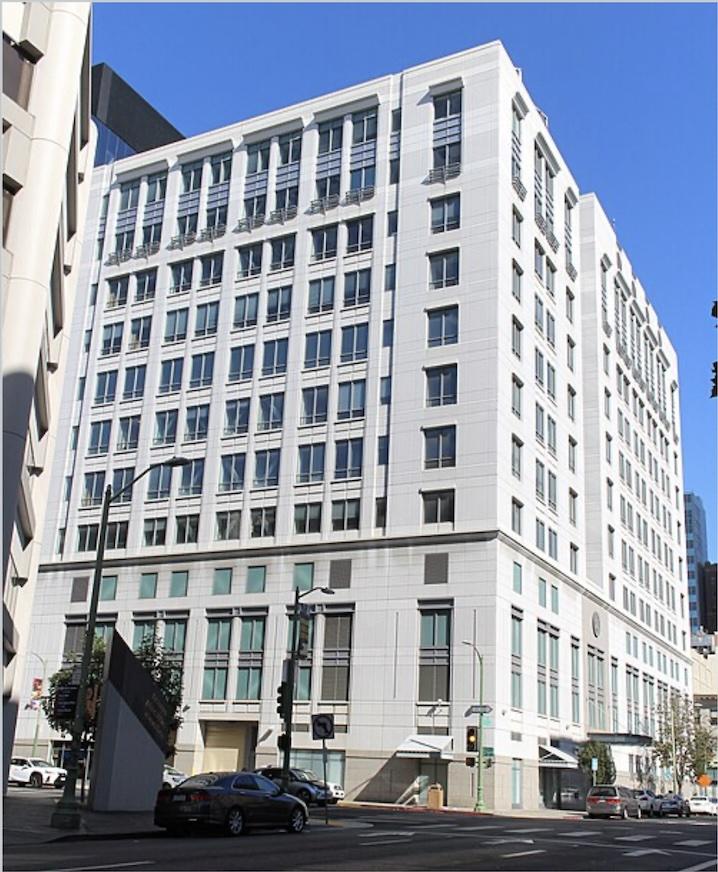WITH the end of 2019 approaching, California is gearing up for new laws set to take effect in the new year. Whether it’s in the workplace, at home, or outside in nature, below are just some of the many policy changes the nearly 40 million Californians can expect in 2020.
Gig economy changes
In California where freelancing and independent contracts are common ways of producing income, the new AB-5 law will put a limit on who companies can classify as employees or independent contractors.
Under the new law, individuals are considered employees unless their employer can prove that the worker is doing work that is not central to the business, the worker is engaged in an independent business or occupation in the industry, and the worker is free from control of the employer or company.
The bill has been targeted towards ride hailing and food delivery companies like Uber, Lyft, Postmates, and DoorDash that have failed to offer its drivers any protections or benefits. However, the new law has already been criticized by other gig workers like freelance writers who take issue with the fact that the law prohibits nonemployees from submitting more than 35 pieces per year.
Many media companies rely on writers who, according to one Forbes article, sometimes write roughly 35 articles in one month alone.
The American Society of Journalists and Authors, Inc. has already announced that it would be suing the state of California on behalf of freelance journalists — many who have been cut from their jobs in anticipation of the law.
Statewide rent control
In October, Calfiornia became the third state in the U.S. to pass legislation limiting rent increases statewide. The law AB-1482 limits landlords from increasing rents to 5% each year plus inflation, and limits landlords from increasing rent above 10% in total.
In addition, landlords will have stricter eviction requirements in that they will need to have an actual and legitimate reason for evicting tenants. Under the state law, buildings constructed in the last 15 years will be exempt unless a local rent control law says otherwise. The date is also rolling, meaning that apartments built in 2005 will be covered until 2020, and so forth.
More power over online privacy
Starting January 1, Californians will be supported by law in taking control of their online data. Under the California Consumer Privacy Act (CCPA), businesses will be required to inform consumers of data they’re collecting. Businesses will further be required to delete the data if consumers ask them to either through an online form or through a toll-free number.
The effect on companies that do business in California may be big in that most companies participating in the online economy rely on collected data when using targeted ads. How much these companies would be affected will depend on how many Californians will actually assert their rights.
Extending healthcare to young undocumented immigrants
California Governor Gavin Newsom signed SB-104 back in July, making California the first state to extend health coverage through its Medicaid program, to young undocumented adults.
Under the new law, individuals ages 19 to 25 would be covered under California’s Medi-Cal, regardless of whether or not they have “satisfactory immigration status.” Those under 19 years of age are already offered health care coverage.
Loans for Dreamers pursuing graduate studies
Also geared towards young undocumented youth is SB-354, which will give those brought to the U.S. illegaly as children — known as Dreamers — a better chance at pursuing post-baccaleurate education.
Under the new law, Dreamers looking to obtain a graduate degree from either the California State University (CSU) or the University of California (UC), will be eligible for loans and in-state tuition under the state’s DREAM loan program.
Extension for reporting sexual abuse
Beginning in January 2020, victims who have experienced childhood sexual assault but were unable to report it due to an age limit of 26 years old will be able to through an extended age limit of 40 years old. The Child Victims Act also allows adults over the age of 40 to file suit if they suffered a psychological illness or injury from their experienced abuse within the past five years.
The new law has already been seen as exposing religious, private and public organizations to broader legal liability. Just last month, a Filipina American filmmaker from Hollywood announced that she was suing the Archdioces of Los Angeles over sexual assault she experienced as a child by a Filipino priest.
Getting rid of private prisons
Starting in the new year, California will no longer be allowed to renew contracts with private prison companies under AB-32 — a win for advocates of criminal justice reform and immigrant rights.
As for currently operating immigration detention facilities and private prisons, all will be phased out by 2028.
Wildfire efforts
With wildfires being a common major threat to communities across the state, a number of laws taking effect in the new year are meant to improve preparedness and limit negative impact.
Under SB-167, utility companies such as PG&E, will be required to come up with plans on how to more effectively conduct power shut offs that left many Californians frustrated this year.
When it comes to warning communities about possible wildfires, SB-209 requires the Office of Emergency Services and the Department of Forestry and Fire Protection to establish together and lead the Wildfire Forecast and Threat Intelligence Integration Center. The center would serve as the state’s central wildfire warning center for forecasting, analyzing, and giving out warnings of wildfire threats as necessary.
Also as a preventative measure, AB-247 puts more power into the hands of the California Public Utilities Commission when it comes to overseeing tree trimming efforts.
New recreation laws for beaches and state parks
For those who enjoy outdoor recreational activities, there are a few laws taking effect next year that aim to improve the environment and how people experience it.
One law, AB-1762, is giving the California Department of Parks and Recreation a deadline to make a list of state parks that allow dogs. The department has until July 1, 2020 to come up with a comprehensive list of parks down to the number of trail miles dogs are allowed to trek on, and which specific areas are accessible to dogs.
Under SB-8, no longer will people be allowed to smoke or vape at state beaches or parks. People will also prohibited from throwing away any cigarettes or cigars in these areas. Anyone caught violating the law will be fined up to $25. (Rae Ann Varona/AJPress)








People will also prohibited from throwing away any cigarettes or cigars in these areas. Anyone caught violating the law will be fined up to $25………….BFD!